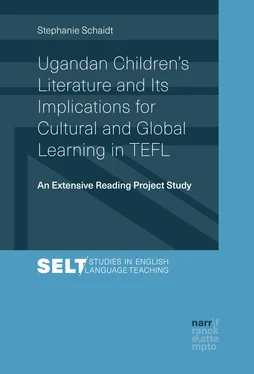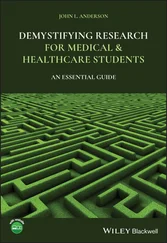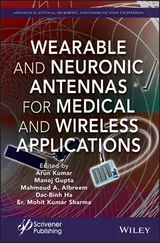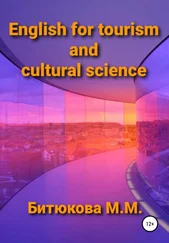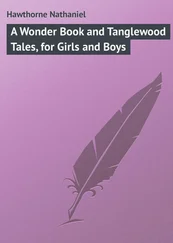Für niedrigere Jahrgänge, also für ein weniger fortgeschrittenes, sprachlich weniger gewandtes und oft weniger leseerfahrenes Schülerpublikum, dessen Curriculum außerdem noch maßgeblich vom Lehrbuch bestimmt wird, lassen sich bisher allerdings kaum Unterrichtsvorschläge und Fallstudien finden. [For lower years, that is for students who are less advanced, linguistically less competent and often with less reading experience, and whose curriculum on top of this is still significantly determined by the course book, fewer teaching suggestions and case studies may be found.] (Burwitz-Melzer, 2003, p. 93; my translation)
Empirical studies, however, provide valuable insights, for example, into teaching materials, teaching procedures and learners’ mental processes in the EFL classroom from which conclusions can be drawn on how to create effective learning arrangements for the students. Therefore, there is still need for more empirical studies in the field.
Furthermore, teaching African cultures and literatures remains largely overlooked in foreign language didactics. Acknowledging that in the last few years “the German EFL curriculum has been considerably extended”, Gohrisch & Grünkemeier (2012b, p. 11) point out that “[c]ompared to other postcolonial regions, Africa is less well represented in German school and university curricula”. Taking a cursory glance at school books used in Berlin and Brandenburg they state that post-apartheid South Africa is the only representative, “while ‘the rest’ of the continent is silenced” (ibid., p. 21). My own look at school books in Bayern and Baden-Württemberg confirmed this observation.2
In foreign language didactics research in Germany, ‘Africa’ has also been largely neglected. Although in the last few years a number of articles and volumes have been published which discuss the teaching of ‘the new’/postcolonial English cultures and literatures (Doff & Schulze-Engler, 2011a; Eisenmann, 2015; Eisenmann, Grimm, & Volkmann, 2010b; Schulze-Engler, 2002), the focus on ‘Africa’ usually remains restricted to South Africa here as well. The volume Listening to Africa (Gohrisch & Grünkemeier, 2012a) seems to be the only volume in German foreign language didactics research targeted at university and high school teachers that focalises different African countries.
Concrete teaching examples by scholars and practitioners centred on African countries are rare, as well. In 2010, when the football World Cup took place in South Africa, a number of foreign language didactics journals dedicated an issue to South Africa (see The Many Faces of South Africa (Bildungshaus Schulbuchverlage, 2010); South Africa (Kieweg & Voigt, 2010)) and South Africa-related topics are occasionally also targeted in other issues (e.g. Decke-Cornill, 1994). Other countries are largely ignored and many articles in journals still focus on ‘Africa’ in general, seemingly homogenising a complete continent (Brose, 2015; Feuerle, 2007; Kazaki, 2014). The book Africa Postcolonial Experiences (Teichmann, 2009), published in the Schöningh Discover Series and edited by Thaler, appears to be a rather isolated example by a school publisher that presents teaching examples which take into account a variety of African countries.
Against the background of these shortcomings, the present study focuses on the intermediate levels of foreign language teaching and a country that has not yet gained much attention in TEFL in Germany, i.e. Uganda. The research seeks empirical insights into the mental processes of Year 9 students in Germany when they engage with Ugandan children’s literature within the scope of an extensive reading project. Students’ approaches to this literature, to ‘foreign’ aspects, their (de)construction and reflection processes are analysed. Taking postmodern and postcolonial discourses into account, implications for cultural and global learning in the EFL classroom and literary didactics are deduced.
With the focus on Ugandan children’s fiction in the present study, the scope of research in foreign language didactics is extended and a path that turns away from a homogenising approach to ‘Africa’ taken. However, I also repeatedly make use of the adjective ‘African’ in my study. As my research deals with (de)constructions of ‘otherness’, it is of particular importance to critically reflect upon the terminology that is applied, which is done in the following paragraphs.
The term ‘African’ is problematic as it feigns homogeneity, which is untenable with respect to a large continent that is in fact extraordinarily heterogeneous (e.g. concerning its history, linguistic diversity, etc.). Giving various examples of the heterogeneity of the continent Taiye Selasi (2013) points to this issue of generalising:
Of all the continents, Africa is the least eligible for generalization. Still, not a week goes by that I don’t hear someone use the adjective “African” and wonder: where exactly, in your mind, is this Africa of which you speak? What language do they speak in this Africa? What is the weather like? What are we thinking for food, clothing, music, worship, topography? Are we imagining the snow-capped mountains of Cape Town or the grasslands of Nairobi or the urban sprawl of Cairo or the cacophonous chaos of Lagos? Or are we rather imagining an animated scene from Disney’s The Lion King , a yellow-orange vista just before twilight with drums playing softly in the distance? (ibid., p. 6)
With respect to the term ‘African literature’, a generalisation is also questionable. In her talk, Selasi proclaims that “African Literature Doesn’t Exist”. She argues that
[i]n order to believe in “African literature”—to employ the term as if it possessed some cogent, knowable meaning—we must believe that the word African possesses some cogent meaning as well. But what? The African continent consists of 55 states recognized by the UN. That’s roughly the same as Europe’s 50, though I’ve never heard of anyone placing authors from, say, Switzerland, Serbia, Spain and Sweden on a panel of ‘European writers.’ […] The trouble is obvious: continents are naturally formed landmasses comprised of numerous countries. If states make suspicious categories for art, continents are closer to useless. (ibid., p. 5)
As an alternative way to classify literature, Selasi suggests putting a stronger focus on the identity of the writing not the writer: “Wouldn’t it be wonderful if we classified literature not by country but by content: the love story, the city novel, the novel of the nation-state, the war novel, the bildungsroman?” (p. 14).
It has to be noted, however, that the adjective ‘African’ and the denomination ‘African literature’, as well as references to nationality and national literature, also play an important role in the context of the pan-African movement (W.E.B. Du Bois, Léopold Senghor, Jomo Kenyetta, Kwame Nkrumah) and the development of a counter-discourse to Western literature in the mid-twentieth century. Following the political disengagement from the colonisers, a period of pan-Africanism/nationalism ensued in many African countries. Writers “wanted to exhibit and defend African culture against the Western rationalisation of colonialism” (Ojaide, 1995, p. 5). Furthermore, influenced by the fact that they are frequently perceived as ambassadors for the African continent, even today writers with Nigerian, Ugandan, etc. roots who live in the Global North also often describe themselves as African. Adichie (2009), for example, states:
I must say that before I went to the US I didn’t consciously identify as African. But in the US whenever Africa came up people turned to me. Never mind that I knew nothing about places like Namibia. But I did come to embrace this new identity. And in many ways I think of myself now as African. Although I still get quite irritable when Africa is referred to as a country.
Читать дальше
